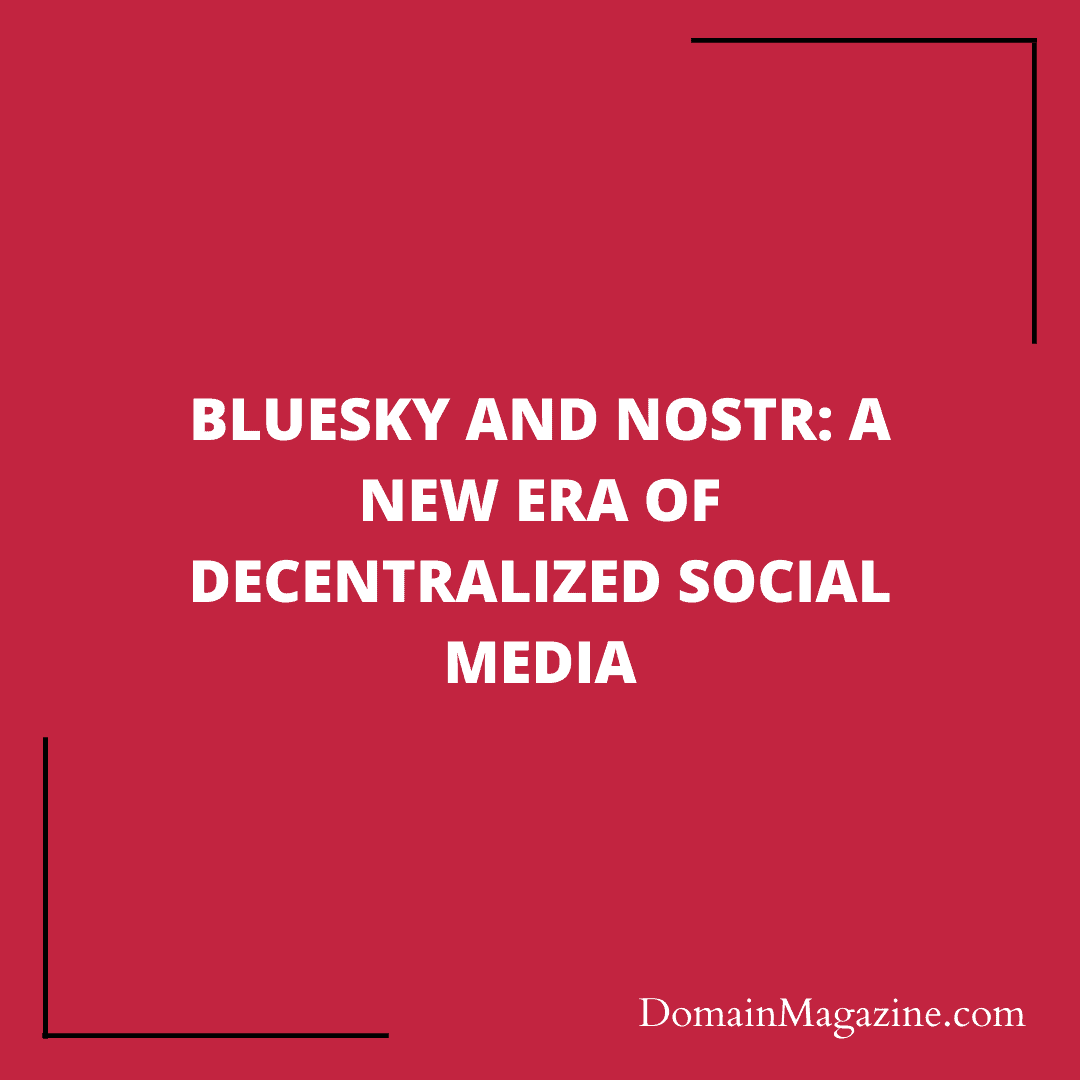Twitter is one of the most popular social media platforms in the world. However, its centralized nature has always been a source of concern for many users who worry about their privacy and freedom of expression. In response to these concerns, two decentralized social media platforms, Bluesky and Nostr, have emerged, both backed by Twitter’s co-founder Jack Dorsey.
Bluesky and Nostr are growing rapidly, attracting early adopters who are creating brand new social spaces. However, they are also facing some challenges, including the need to establish new norms and the difficulty of joining Nostr due to its decentralized protocol based on public and private key cryptography.

Bluesky: A Proof-of-Concept Front-End to the AT Protocol
Bluesky is a proof-of-concept front-end to the underlying AT Protocol, which is intended to form the basis of a broad network of interoperable apps and services. The app was released for Android smartphones almost two months after its iOS client went live on the Apple App Store. The web client is still in pre-beta, and Bluesky access is still invite-only. However, its user base is growing rapidly, accelerating from about 1,000 to 2,500 new members a day, surpassing a total of 33,000 this weekend.
Bluesky is drawing a more diverse mix of users, from digital artists and NFT fans to political and social activists to people who post daily photos of food, cats, and other content that’s more reminiscent of Twitter. One early benefit of the decentralized Bluesky approach is that usernames can be tied to web domain names, and thus serve as a form of verification.
Nostr: Notes and Other Stuff Transmitted by Relays
Nostr is comparable to the AT Protocol and is a framework under which more than a dozen apps and other services already operate. It is also an acronym for “notes and other stuff transmitted by relays.” However, joining Nostr can be difficult due to its decentralized protocol based on public and private key cryptography. A user’s canonical identity is his or her public key, and while you can register on a client for a username like [email protected], it can cost some cryptocurrency.
Even so, Nostr has been embraced by technical communities, and with a variety of apps instead of just one, including Damus on iOS, Amethyst on Android, and the snort.social web interface, Nostr could have as many as 16 million users, according to Nostr.Band, and as many as 780,000 daily active users.
The Free Speech Debate and Its Complexities

Decentralized social media platforms like Bluesky and Nostr have sparked a new debate about free speech and its complexities. On the one hand, decentralization offers greater privacy and freedom of expression, but on the other hand, it can also be a breeding ground for hate speech, harassment, and other forms of online abuse.
Bluesky and Nostr are still in the early stages of development, and their communities are still grappling with how to establish norms and policies to prevent abusive behavior. However, the decentralized nature of these platforms means that users have more control over their online experience, and moderation can be done at the community level rather than relying on centralized authorities.
Final Thoughts
Bluesky and Nostr represent a new era of decentralized social media, offering greater privacy and freedom of expression to users. However, they are still in the early stages of development, and their communities are still grappling with how to establish norms and policies to prevent abusive behavior. Nevertheless, these platforms have the potential to offer a more democratic and inclusive alternative to centralized social media platforms like Twitter.


Join the Discussion